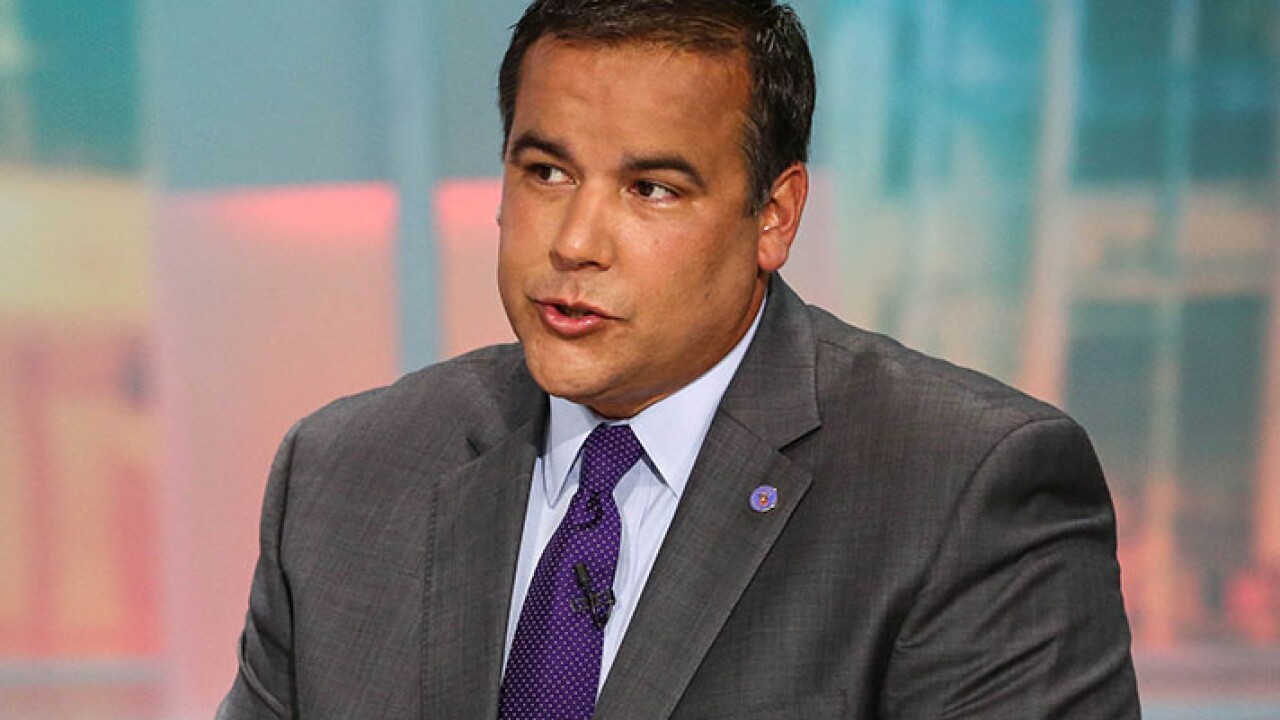WASHINGTON — The Internal Revenue Service’s tax-exempt bond office has received referrals of around 30 whistleblower claims of potential abuses in the municipal bond market, an official said Friday.
Speaking Friday at the American Bar Association tax-exempt financing committee’s spring meeting here, Clifford Gannett, acting director of government entities at the IRS, said 30 represents “a fairly significant” amount of claims.
Each referral undergoes a “taint analysis” to determine if the claim qualifies as whistleblower material, according to Gannett, then the IRS tax-exempt bond office will decide if the case is worth pursuing. He declined to describe any of the 30 claims, even generally.
Gannett has been temporarily promoted to acting-director of government entities, which covers three units: tax-exempt bonds, state and local governments and Indian tribal governments. He will be acting in that post for the next five months. Bob Henn has temporarily replaced him as acting director of the tax-exempt bond office.
Gannett also told the lawyers that the IRS has between 25 and 30 examinations underway concerning Build America Bonds. Since Oct. 1, the beginning of fiscal 2011, the IRS has received about 4,000 requests for BAB subsidy payments, he said. Since the start of the BAB program in 2009, the IRS has paid out about $4 billion in subsidy payments.
As issuers continue to struggle amid the economic recovery, the IRS is scrutinizing two areas of concern: governments that are teetering on insolvency and transactions tied to property values, Gannett said.
The IRS has set up a distressed government entities team, led by Bob Griffo. The new nine-member team is “doing a lot of research right now” looking at issues affecting debt issued by troubled governments, Gannett said.
“One of the areas I have been concerned about is the government insolvency issue and how that potentially could affect municipal bonds,” he told the lawyers.
With the real estate sector continuing to lag the overall recovery, the TEB office is looking at ways that weak property values are affecting deals, particularly for tax-increment financings and payment-in-lieu-of-taxes, or PILOT, bonds, he said.
“We are concerned about dropping real estate values,” Gannett said. “You have private users on a lot of these deals, so the question is, are they going to have trouble with the public payments?”
Since President Obama’s hiring freeze took effect, the TEB office has lost 12 agents through attrition, according to Gannett, and more agents could also leave for retirement.
“We’ve been able to continue to do our examinations,” he said. The tight budget conditions have not prevented agents from getting to sites for inspections and some training classes have continued as well, he added.
The IRS dodged a significant budget cut for fiscal 2011 during the final round of negotiations last month. Still, spending for travel has been curtailed, limiting the TEB office’s outreach to issuers, Gannett said.
Gannett said that the IRS will issue guidance on reissuance within the next few weeks.
John Cross 3d, associate tax legislative counsel, at the Treasury, said the department will issue a final version of solid-waste rules this year.
ABA meeting participants and the regulatory officials also discussed calls by several deficit-cutting commissions to the end tax-exemption for certain or all new municipal bonds as part of federal tax reform. The dialogue so far has put market participants on the defensive as lawmakers and analysts contend muni bonds are an inefficient way to subsidize state and local projects.
President Obama’s National Commission on Fiscal Responsibility and Reform headed by former Sen. Alan Simpson and Erskine Bowles, chief of staff in the Clinton administration, called for tax-exempt interest to be eliminated for new municipal debt.
Cross told the attorneys that there may not be imminent reform, but “there is more energy now on the topic than there has been in years.”
“You certainly could see [tax reform] gaining momentum over the next two or three years, maybe,” he said.
Some opponents of tax-exempt muni bonds have said a tax-credit program could more efficiently deliver cost savings to state and local government projects. A bill introduced last month by Sens. Ron Wyden, D-Ore. and Dan Coats, R-Ind., would eliminate new tax-exempt bonds in favor of tax-credit bonds.
Cross said Congress should consider three issues when considering muni bond tax-related reforms: the best way to deliver a subsidy to state and local governments, the depth of the subsidy, and the program parameters
“What’s the best mouse trap in terms of how do you deliver the subsidy? People look at the tax benefits on the deduction side of the equation and say, 'Those are inefficient, it would be better if you did things on the credit side of the equation,’ ” Cross said.
Before the federal stimulus program, tax-credit bonds included qualified zone academy bonds, clean renewable energy bonds and qualified energy conservation bonds.
Then in 2009, the American Recovery and Reinvestment Act authorized more than $1 billion more for the QZAB, CREB and QECB programs and created a new tax-credit bond program for qualified school construction bonds.
Cross pointed out that these programs were not a huge success and said that even with lucrative subsidies, underwriters “still couldn’t sell those bonds very well” after the stimulus law increased allocations for them.
In March 2010, Congress changed the law to allow all of the tax-credit bond programs to have a direct-pay option so that BAB-like bonds could be issued.
One idea floated at the meeting to boost demand for tax-credit bonds was for the tax credit to be refundable so that the investor could redeem the tax credit for cash, attorneys said.
But Cross said the refundable aspect of a tax credit would likely add to IRS administrative burdens. He said any hint that the refundable tax credit was a form of spending through the tax code could face the same political resistance as BABs.
Still, he said the refundable option is “an interesting idea.”
Cross also was asked about the prospect for BAB subsidy payments if the federal government hits the debt limit. Would the subsidy payments stop, an attorney asked?
“I believe that reasonable minds will prevail and some reasonable solution will occur with the debt ceiling,” Cross said. “I don’t think there would be any short-term hiccup with the debt ceiling.”
To add their voices to the tax reform debate, the ABA’s committee on tax-exempt financing has drafted a list of 12 proposals for the muni market. Members have until July 1 to submit comments to the draft.
The attorneys are suggesting issuers be allowed to current refund tax-credit bonds and BABs. In a current refunding, refunding bonds are issued and the proceeds are used to redeem previously issued bonds within 90 days.
The attorneys said current refundings for BABs and tax-credit bonds would be a “win-win” for state and local governments, which could reduce their borrowing costs, and the federal government, which would be able to pay lower subsidy payments and offer lower tax credits.
“The bond is not changing in size, scale or duration,” said Edwin Oswald, a partner with Orrick, Herrington & Sutcliffe LLP. “All we are simply doing is dropping the coupon.”
The proposals also include increasing the threshold for a qualified small issuer that could sell bank-qualified bonds. The current limit is $10 million. Banks can deduct 80% of the cost of buying and carrying the tax-exempt bonds sold by issuers whose annual bond issuance is less than $10 million. The limit was raised to $30 million by the ARRA, but expired on Dec. 31.
Many small issuers rely heavily on banks as their main source of financing, the attorneys said.





